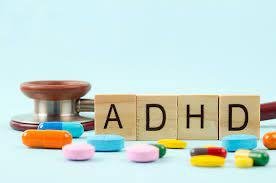Attention-deficit/hyperactivity disorder (ADHD) is a neurodevelopmental disease that is most often found in kids but can last into adulthood. People with ADHD are often given stimulant drugs like methylphenidate (Ritalin) and amphetamines (Adderall) to help them deal with their symptoms. Even though these medicines can help, there are worries about how they could be abused and the risk of drug abuse that comes with it.
How medications for ADHD work
Most ADHD medicines work by raising the brain's amounts of neurotransmitters like dopamine and norepinephrine. These hormones are very important for controlling behavior, attention, and impulses. Stimulants help people with ADHD focus better, control their emotions, and deal with hyperactivity by increasing the activity of neurotransmitters.
Taking too many ADHD medicines
Misusing ADHD drugs is one of the biggest worries about them. Some people, especially teens and young adults, may use these drugs for reasons other than medical ones, like to feel good or for a "high." This kind of abuse can include taking more than the recommended amount, abusing drugs in other ways (like crushing pills to snort or inject them), or getting drugs without a prescription.
Risk of Abusing Drugs
Abusing ADHD medicines can make it more likely for someone to abuse drugs. According to research, people who abuse stimulant drugs are more likely to abuse other drugs or booze as well. This link could be caused by common risk factors, like a family predisposition, environmental factors, or neurobiological weaknesses.
How addiction affects the brain
In order to find a link between ADHD medicines and drug abuse, it is important to understand how addiction works in the brain. Taking stimulant drugs for a long time can change the brain's reward system, which might make it more likely to develop addictive habits. These changes may affect how neurotransmitters work and how reward circuits work, which may make people more likely to seek drugs.
Things that can lead to abuse and misuse
Misusing and abusing ADHD medicines is caused by a number of things. Some of these are a past of drug abuse in the person or in their family, having more than one mental illness (like depression or anxiety), being affected by social pressures (like peer pressure), and having easy access to medications. In addition, people who have a past of impulsivity or seeking thrills may be more likely to abuse stimulant drugs.
Strategies for prevention and intervention
Prevention and early intervention are the main ways that people try to lower the risk of drug abuse that comes with ADHD medicines. Health care professionals are very important for teaching patients and their families how to use medicines correctly and about any risks that might come with them. Monitoring how well medications are taken and how well treatment is working can help find misuse early.
Learning and Being Aware
It is very important to make patients, parents, teachers, and healthcare professionals more aware of the risks of abusing ADHD medications. Giving correct information about the medicine's intended therapeutic effects, possible side effects, and how to store it properly can help stop it from being used for things other than medical purposes.
Different Ways to Treat Problems
People who have a history of drug abuse or who are at a high risk of abusing medications may want to try different ways to treat their ADHD. Some examples are cognitive-behavioral treatments, non-stimulant medications, and behavioral therapies. Adapting treatment plans to each person's needs and treating co-occurring conditions can help people use stimulant drugs less.
In conclusion
Many people with ADHD can control their symptoms with medicine, but abusing these drugs comes with big risks, such as a higher chance of abusing other drugs. To lower these risks, it's important to understand the neurobiological processes that cause addiction, figure out what puts people at risk, and use methods to keep them from becoming addicted. Healthcare professionals can help people with ADHD get the best results while lowering the risk of drug abuse by encouraging responsible medication use, raising awareness, and looking into alternative treatments.

